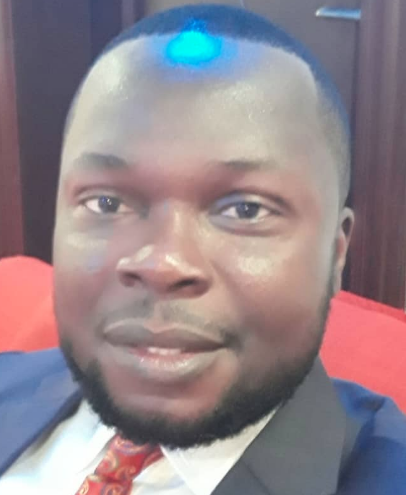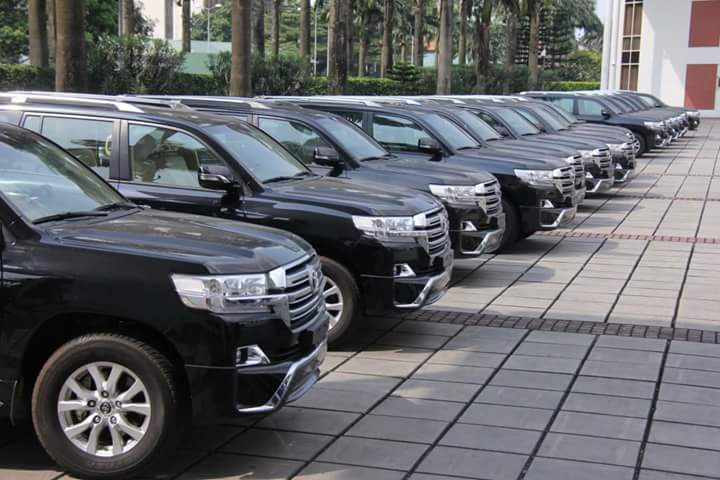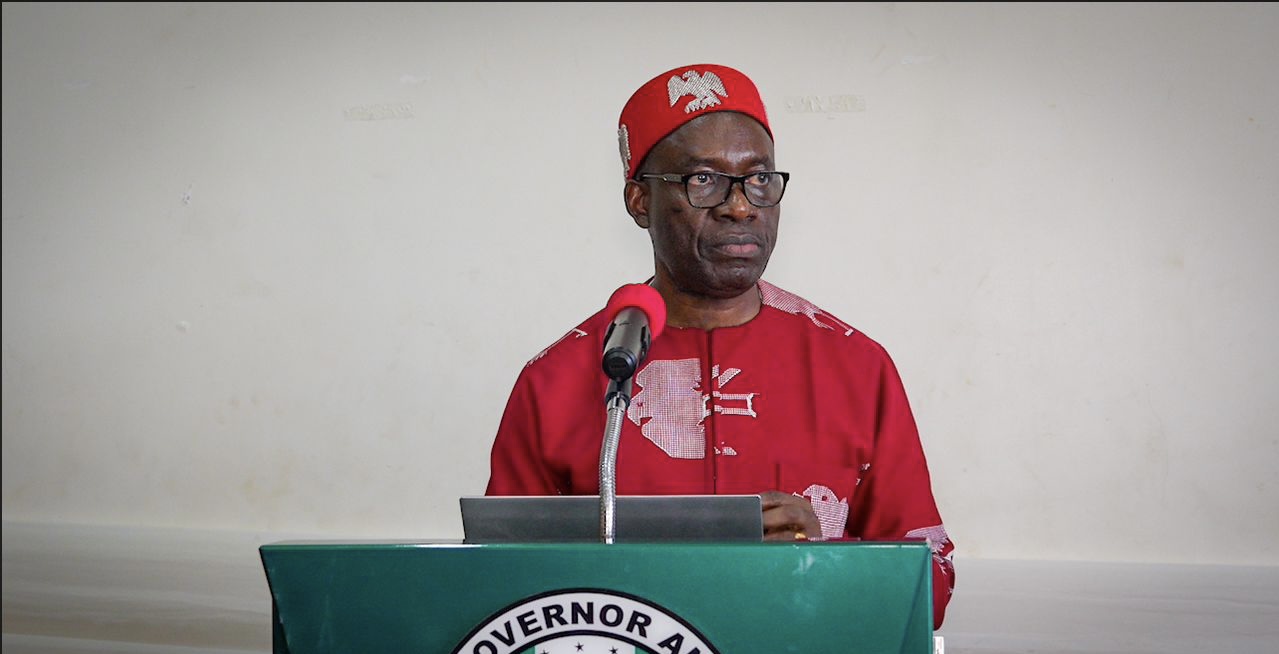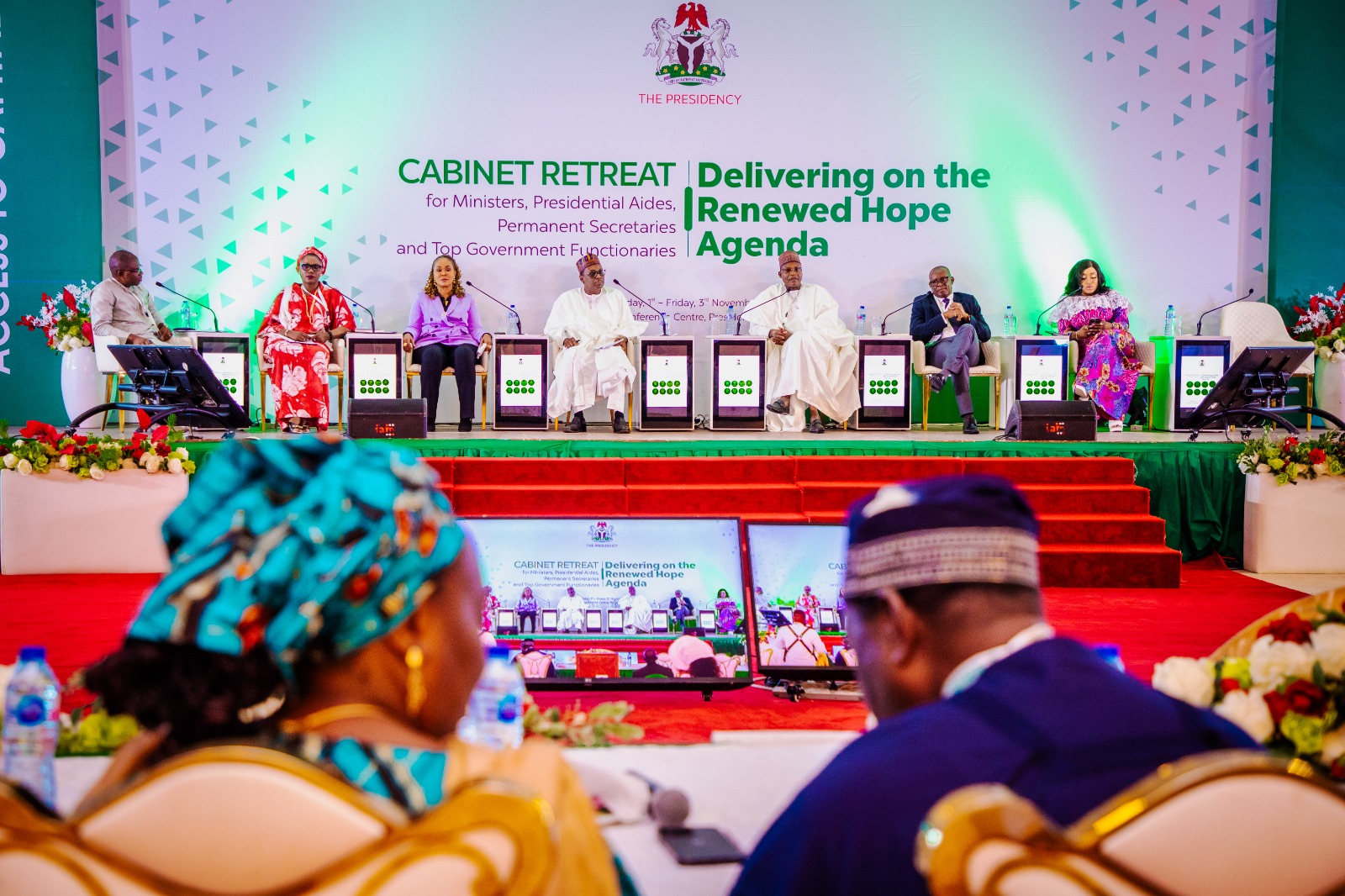Browsing through the internet this morning, I came across a news report written by Tienabeso Bibiye, published on www.ait.live, the digital platform of the African Independent Television (AIT), with the title; ‘VP Shettima Heads to China, USA to Woo Investors’. That report was based on a press statement signed by Stanley Nkwocha, the senior special assistant to the president on media and communications, office of the Vice president. Shettima who left Nigeria to represent President Bola Ahmed Tinubu on a diplomatic mission to China and the United States of America participated in two significant international forums; the 3rd Belt and Road Initiative (BRI) Forum in China and the renowned Norman E. Borlaug International Dialogue in the USA.
The above report, which comes as an encouraging news to all Nigerians, signifies Senator Shettima’s quest to use his understanding of foreign policy as a strategy towards consolidating Nigeria’s economic strength, proving his mettle as a dependable vice to President Bola Ahmed Tinubu, —a courageous leader who seems determined to make a difference. This becomes even more heart-warming when one considers the strategic positioning of the USA and China, not only as the first and second leading economies of the world but also as the two major strategic economic partners with Nigeria.
According to a report published by the US Department of State, “the United States is the largest foreign investor in Nigeria; with U.S. Foreign Direct Investment concentrated largely in the petroleum/mining and wholesale trade sectors. In 2022, the two-way trade in goods between the United States and Nigeria totalled over $8.1 billion. At $3.4 billion in 2022, Nigeria is the second largest U.S. export destination in Sub-Saharan Africa. U.S. exports to Nigeria include vehicles, wheat, machinery, fuels, and plastics. Nigerian exports to the United States include crude oil, cocoa, cashew nuts, and animal feed. Multiple U.S.-based film and entertainment companies are active in Nigeria, and Nigeria’s creative industries have significant export potential. Nigeria is eligible for preferential trade benefits under the African Growth and Opportunity Act (AGOA).”
China is also one of Nigeria’s top trading partners. According to the World Bank, “Nigeria-China trade in products increased from about USD 1.2 billion in 2003 to USD 13.7 billion in 2019. Within the same period, Chinese investment in Nigeria increased from USD 24.4 million to USD123.27 million and Nigeria became one of the top five Chinese investment destinations in Africa. Beyond trade and investment, China is financing large projects and its companies are contracted to deliver major infrastructural projects in Nigeria– including railways, road projects and the rehabilitation of Nigeria’s main four airports in Abuja, Lagos, Kano and Port Harcourt. All this makes China fundamental to Nigeria’s development finance.”
Advertisement
It is in the light of the above that one will better appreciate the strategic importance of Shettima’s economic diplomacy with these two leading economies. For many keen observers, especially those who understand the vital role foreign policy plays in consolidating the economies of nations, Shettima’s recent outings prove that he understands Mr President’s vision and what Nigeria must do to turn the tide of global trade to Nigeria’s strategic advantage. For those who may be new to this terrain, economic diplomacy is how countries use foreign policy to build economic strength and prosperity at home. Diplomats worldwide work to advance their national interests, improve their nation’s economies, ensure market access, and facilitate business relations.
One of the major reasons why economic diplomacy matters is that it is closely linked to foreign policy. In today’s interconnected world, economic diplomacy has become an increasingly important tool for governments seeking to advance their national interests and promote international cooperation. By leveraging the power of trade and commerce, countries can forge positive relationships with one another, build mutual trust and understanding, and create new opportunities for growth and development. By promoting economic interdependence and cooperation, countries can reduce the risk of conflict and create incentives for the peaceful resolution of disputes when needed. At its core, economic diplomacy is about using economic means to achieve political ends.
Economic diplomacy, which narrows down to trade and investment relations, is among the most important channels through which countries interact with one another, and it can have a profound impact on the broader strategic positioning of nations. By negotiating favourable trade agreements, promoting exports and investment, and protecting domestic industries, countries can boost their economic growth and create new opportunities for their citizens. This can also help to enhance a country’s soft power and influence, as other nations may come to see it as a reliable partner and a valuable member of the international community. This, perhaps, explains why discerning leaders are always on the lookout for such global platforms that can help advance their nation’s economic cause. And from what we have seen so far, it is clear that Shettima understands the dynamics of economic diplomacy. This can be seen both in his words and actions.
Advertisement
Speaking during the 3rd Belt and Road Initiative (BRI) Forum in China, Shettima spoke with an infectious boldness, stressing that Nigeria’s strategic partnership with China needs to be scaled up, as it remains key to Africa’s development. Declaring that the rest of Africa stands to gain from a successful Nigeria, the Vice President stated that, “our mutually beneficial relationship with China will be further enhanced and upgraded to a comprehensive strategic partnership. Nigeria is China’s second-largest trading partner in Africa; it is the largest economy in Africa and the most populous country in the African continent. The Belt and Road Initiative is a big beautiful concept that can be deployed to achieve this.”
Speaking further, the Vice President stated that since assuming office, President Bola Tinubu has strategically tinkered with Nigeria’s foreign policy to drive and boost investors’ confidence. To augment this, he noted that President Tinubu has walked the talk by creating levellers for the ease of business in Nigeria. These words could only have come from a man who understands his principal’s vision and the strategic importance of economic diplomacy towards the actualization of that vision. On his part, Vice President Zheng assured his Nigerian counterpart of continued partnership with Nigeria, hinting that President Jinping’s meeting with Shettima would enhance political mutual trust, advance practical cooperation and better develop the bilateral relation between Nigeria and China.
Some of the most significant takeaways from VP engagements in China include China’s renewed commitment to the completion of the Lagos-Ibadan, Abuja-Kano and Port-Harcourt-Maiduguri railway projects, the signing of an MoU between the Federal Ministry of Works and the China Harbour Engineering Company Ltd for the construction of the Lekki Blue Seaport contract at the Lekki Free Trade Zone in Lagos and the signing of an MoU between the National Agency for Science and Engineering Infrastructure, (NASENI) and three Chinese partners for new projects valued at $2 billion. These came as Nigeria continues to reap heaps and bounds of dividends from the 3rd Belt and Road Initiative (BRI), with another $4 billion worth of letters of intent for new projects and investments.
At the successful completion of his diplomatic engagements in China, Shettima headed to the United States of America, driven by the same passion for our national development. In the USA, he delivered the keynote address at the renowned Norman Borlaug International Dialogue, an event organized in collaboration with the African Development Bank (AfDB) and the World Food Prize with an assemblage of distinguished African and international leaders, reinforcing Nigeria’s global influence. Taking advantage of such a global platform, Shettima wooed investors from the United States and other countries, stating that “Nigeria remains the best place to invest, given its 70 million hectares of underutilised arable land, which he said is 75 per cent of the country’s total land mass. He told them that under President Tinubu’s watch, Nigeria has since demonstrated that the agri-food sector is a top priority”.
Advertisement
According to a statement by VP’s Spokesman, Mr Stanley Nkwocha, one of the immediate gains from the VP’s engagement in the US was the resolve by an American company, John Deere, to invest in Nigeria’s agricultural sector, first by setting up a tractor assembly plant in Nigeria. The decision was taken during a meeting between VP Shettima and top officials of the firm led by its vice president on production systems, Jason Brantley. The meeting was facilitated by the chairman of Flour Mills of Nigeria, John Coumantaros, a long-time investor in Nigeria.
The icing on the cake in terms of Foreign Direct Investment (FDI) may just be the amazing news that the African Development Bank (AfDB), the Islamic Development Bank (IDB), and the International Fund for Agricultural Development announced at the Norman Borlaug International Dialogue that they have voted a whopping $1 billion to further deliver on the Special Agro-Industrial Processing Zones (SAPZs) in 24 states of Nigeria. The president of the African Development Bank Group, Akinwumi A. Adesina, said the decision to pump such huge funds was to develop SAPZs in 13 countries. The socio–economic impacts of these ambitious projects in Nigeria can better be imagined.
In consideration of these significant achievements, one can’t but agree with the fact that Shettima’s diplomatic mission has been a great success. When one thinks more deeply about that success, one realizes that such milestones are achieved when you have a president who comes with a compelling vision and a vice president who understands both the vision and the strategic importance of economic diplomacy towards the actualisation of that vision. That combination doesn’t come often in history. God seems to have remembered Nigeria for good.
Obidiaghaa is the author of Nigeria’s Manifest Destiny.
Advertisement
Views expressed by contributors are strictly personal and not of TheCable.
Add a comment







